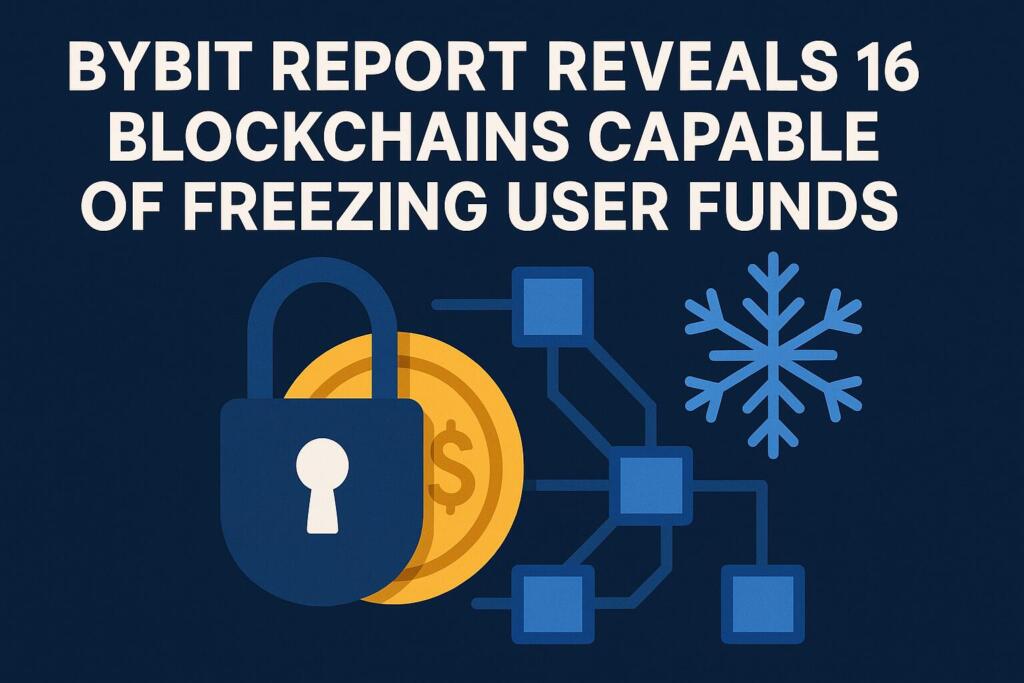A recent report from Bybit’s Lazarus Security Lab has revealed that 16 major blockchains are capable of freezing or restricting user funds during hacks or security breaches. The report, titled “Blockchain Freezing Exposed,” provides an in-depth look at how networks can control transactions to mitigate damage during such incidents. Researchers used both AI and manual methods to analyze 166 blockchains, uncovering that 16 networks currently have built-in fund-freezing mechanisms.
Types of Blockchain Freezing Controls
The report categorizes blockchain freezing mechanisms into three main types: hardcoded freezing, setting-based freezing, and on-chain contract freezing. Hardcoded freezing is embedded into the blockchain’s code, as seen in BNB Chain and VeChain. Setting-based freezing is implemented through validators or network settings, which is the case with Sui and Aptos.
Lastly, on-chain freezing is managed through system contracts, such as in the case of HECO. These varied approaches demonstrate how blockchain networks are adopting different strategies to address security threats.
Real-World Application of Freezing Mechanisms
The report highlights several real-world cases where freezing mechanisms were put into action. In May 2025, the decentralized exchange Cetus, operating on the Sui network, was targeted in a $223 million hack. Exploiting a vulnerability in the platform’s math library, the attacker drained liquidity pools. Following the breach, Sui validators and the network’s foundation acted quickly to freeze $162 million to prevent further losses. In a subsequent vote, over 90% of validators agreed to recover the frozen funds, which were later transferred to a multisignature wallet.
Similarly, Aptos, which adopted security measures following the Sui hack, released a tool called TransactionFilter in July 2025. This tool enabled validators to blacklist and deny transactions from harmful addresses. Although the blacklist is adjustable through configuration files, each update requires a node restart. By contrast, BNB Chain faced a major security breach in October 2022, when a vulnerability was exploited to issue 2 million BNB, leading to a loss of $570 million. In response, BNB Chain halted operations and blacklisted the attacker’s wallet.
The Push for Transparency in Blockchain Freezing
The report underscores the importance of transparency when it comes to freezing capabilities in blockchain networks. David Zong, from Bybit, emphasized that while security tools are crucial for protecting users, they must be transparent to ensure trust and proper governance. As the decentralized finance (DeFi) sector faces increasing security threats, transparency in these systems becomes even more essential. For instance, the Balancer hack in 2025, which siphoned $129 million in assets across Ethereum, Base, and Berachain, exposed vulnerabilities in DeFi protocols. This breach has only intensified calls for clearer and more robust security measures within the industry.
As blockchain technology continues to evolve, ensuring transparent security measures will be critical for fostering trust and protecting users from potential threats. Bybit’s report highlights the growing need for accountability in blockchain operations, especially in the face of an increasing number of cyberattacks targeting DeFi platforms.







